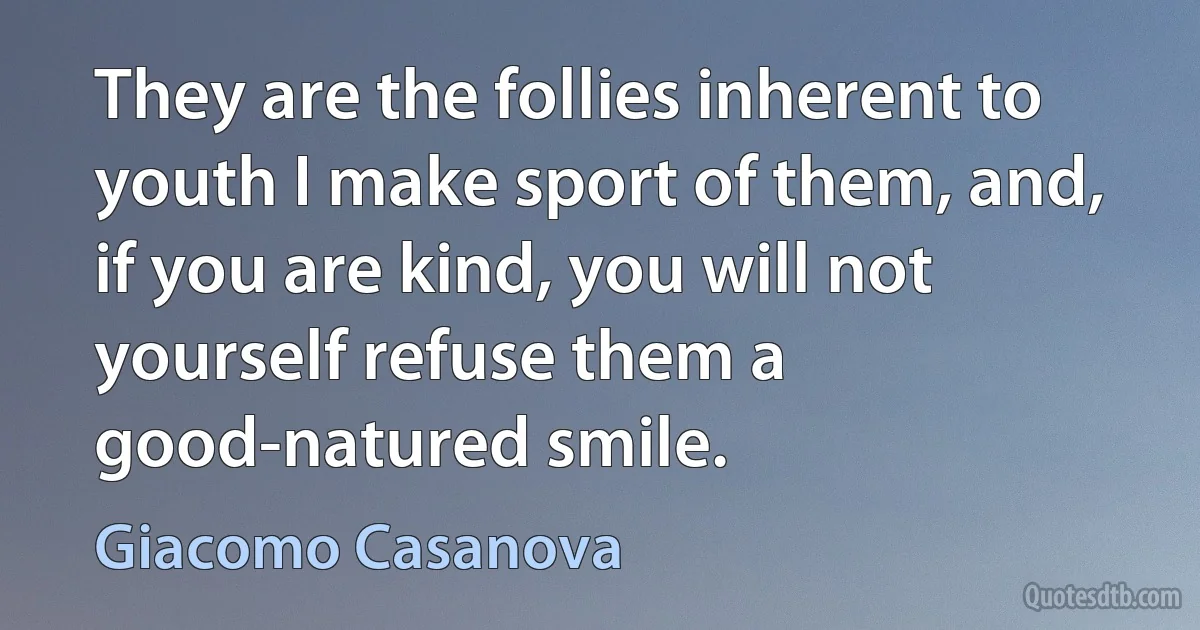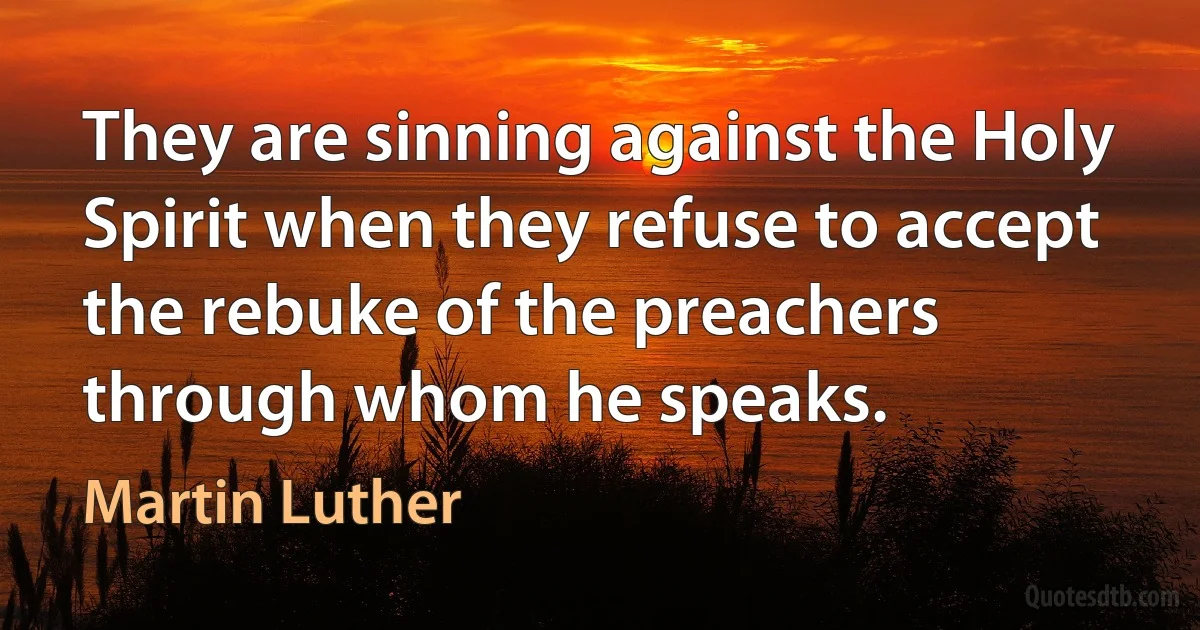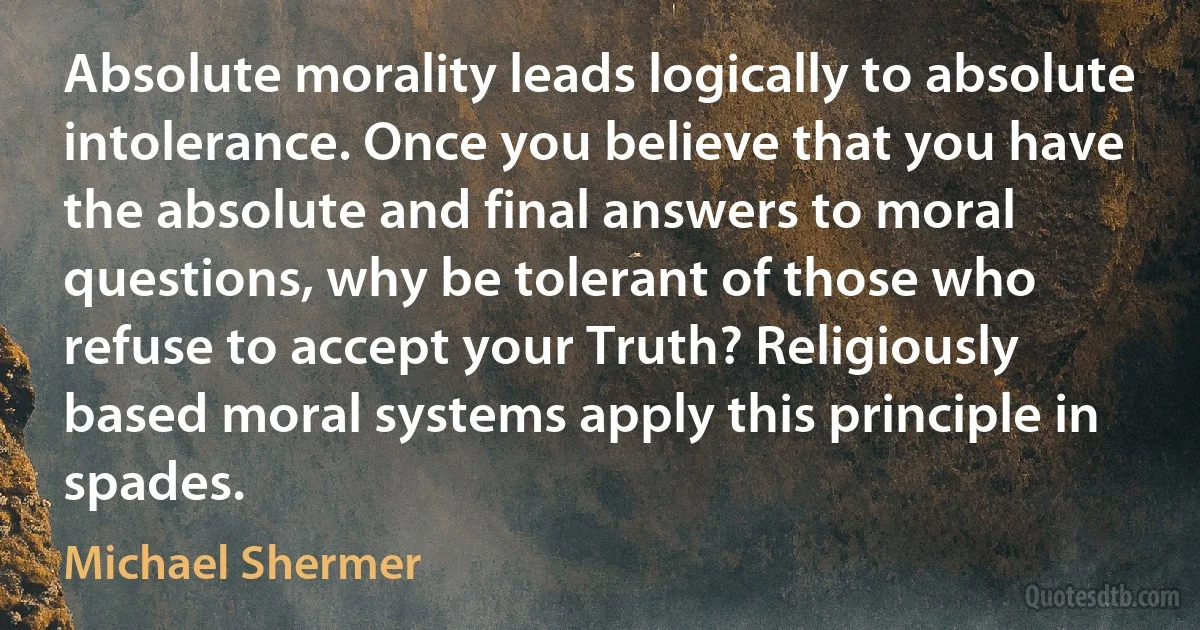Refuse Quotes - page 30
Some more in this convention came from Kentucky to Illinois (instead of going to Missouri), not only to better their conditions, but also to get away from slavery. They have said so to me, and it is understood among us Kentuckians that we don't like it one bit. Now, can we, mindful of the blessings of liberty which the early men of Illinois left to us, refuse a like privilege to the free men who seek to plant Freedom's banner on our Western outposts? Should we not stand by our neighbors who seek to better their conditions in Kansas and Nebraska? Can we as Christian men, and strong and free ourselves, wield the sledge or hold the iron which is to manacle anew an already oppressed race? "Woe unto them," it is written, "that decree unrighteous decrees and that write grievousness which they have prescribed."

Abraham Lincoln
We simply do not consider it desirable that a realm of justice and concord should be established on earth (because it would certainly be the realm of the deepest leveling and chinoiserie); we are delighted with all who love, as we do, danger, war, and adventures, who refuse to compromise, to be captured, reconciled, and castrated; we count ourselves among conquerors; we think about the necessity for new orders, also for a new slavery - for every strengthening and enhancement of the human type also involves a new kind of enslavement.

Friedrich Nietzsche
Do we refuse to forgive? God, too, will refuse to forgive us. As we treat our neighbors, so also does God treat us. The forgiveness or unforgiveness of your sins, then, and hence also your salvation or destruction, depend on you yourself. For without forgiveness of sins there is no salvation. You can see for yourself how serious it is.

Tikhon of Zadonsk
The legislation the President vetoed today authorizes the overall amount for defense that he requested, every single dollar of it. By making clear that he will "not fix defense without fixing non-defense spending," the President of the United States puts defense and the men and women in the military on the same level as the IRS. The President is using our military--using our military--as leverage to fight a battle that the Defense authorization bill cannot accomplish. At a time of mounting threats around the world, it is disgraceful. It is disgraceful the President would refuse to authorize for our troops the resources they need to prepare for and engage in vital missions around the world and that deliver some of the most significant reforms to the Pentagon in more than 30 years.

John McCain
I have come here today not in anger or to anger, though my mere presence has been sufficient, obviously, to anger some. Nor have I come to defend my views, but rather to assert my right to think for myself, to refuse to have my ideas assigned to me as though I was an intellectual slave because I'm black. I come to state that I'm a man, free to think for myself and do as I please.

Clarence Thomas
They say that [I am icy, hard] because I'm sincere. Even too sincere. And because I don't waste time in flowery small talk, as people do in India, where the first half hour is spent in compliments: »How are you, how are your children, how are your grandchildren, and so forth.« I refuse to indulge in small talk. And compliments, if at all, I save for after the job is done. But in India people can't stomach this attitude of mine, and when I say, »Hurry up, let's get to the point,« they feel hurt. And think I'm cold, indeed icy, hard. Then there's another reason, one that goes with my frankness: I don't put on an act. I don't know how to put on an act; I always show myself for what I am, in whatever mood I'm in. If I'm happy, I look happy; if I'm angry, I show it. Without worrying about how others may react. When one has had a life as difficult as mine, one doesn't worry about how others will react. And now go ahead. You can ask anything you like.

Indira Gandhi
Liberty, according to my metaphysics, is an intellectual quality; an attribute that belongs not to fate nor chance. Neither possesses it, neither is capable of it. There is nothing moral or immoral in the idea of it. The definition of it is a self-determining power in an intellectual agent. It implies thought and choice and power; it can elect between objects, indifferent in point of morality, neither morally good nor morally evil. If the substance in which this quality, attribute, adjective, call it what you will, exists, has a moral sense, a conscience, a moral faculty; if it can distinguish between moral good and moral evil, and has power to choose the former and refuse the latter, it can, if it will, choose the evil and reject the good, as we see in experience it very often does.

John Adams
The militarily-patriotic and the romantic-minded everywhere, and especially the professional military class, refuse to admit for a moment that war may be a transitory phenomenon in social evolution. The notion of a sheep's paradise like that revolts, they say, our higher imagination. Where then would be the steeps of life? If war had ever stopped, we should have to re-invent it, on this view, to redeem life from flat degeneration.
Reflective apologists for war at the present day all take it religiously. It is a sort of sacrament. It's profits are to the vanquished as well as to the victor; and quite apart from any question of profit, it is an absolute good, we are told, for it is human nature at its highest dynamic.

William James
We should show ourselves firm in defence of collective peace. If we refuse to be scared or weakened by Germany's growing demands, if we resist the temptation to accept everything Germany asks for as a basis for discussion between us, if for a moment we can cease to be an honest broker and become the honest facer of truths, then I am confident that there is no call to view the future with alarm. If, on the other hand, we appear to the outside world to be weak and vacillating, if we allow The Times to continue to preach defeatism and to continue to be regarded as the organ of His Majesty's Government, then we shall encourage Germany's demands, and, no less serious, encourage the weaker powers to take refuge with her in the belief that the collective peace system can never be effective because England will never play her part in its support.

Anthony Eden
Leopold II was able to push through his imperial wish and obtained that the fate of what would then be called the Congo Free State was linked to his own. He gave Congo its shape and dimensions, as well as a financial-capitalist structure. However, the debt burden that had become too heavy meant that the king handed over his colony to Belgium, a gift that the parliament was hesitant about but did not dare to refuse.

Leopold II of Belgium
Achieving a democratic and equitable international order requires overcoming formidable obstacles, including the wrong priorities by governments and international organizations, bias in favour of civil and political rights over economic, social and cultural rights, the prevailing demophobia in many countries, where governments refuse to listen to their citizens and ban referenda, the curses of positivism, selectivity and double-standards, the tendency to go for short-term solutions instead of addressing root causes, the continued existence of secrecy jurisdictions, the impunity of transnational corporations and other private sector actors, and, of course, institutional inertia.

Alfred de Zayas



